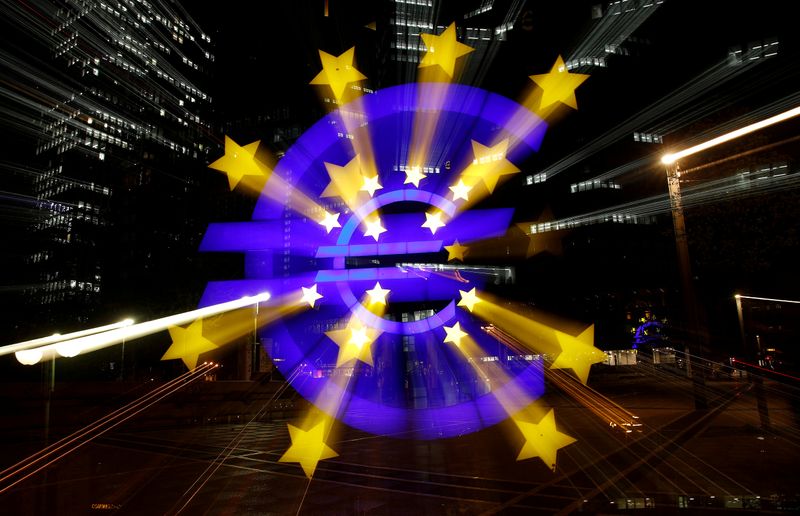By Francesco Canepa and Balazs Koranyi
FRANKFURT (Reuters) - European Central Bank policymakers do not expect to decide on the future of their emergency bond purchase programme in September as there will still be uncertainty over the path of the pandemic at that point, three sources told Reuters.
The ECB at its monetary policy meeting on Thursday raised the bar for what would be its first interest rate hike in more than a decade, but did not make a decision on when to end the 1.85 trillion euro ($2.18 trillion) Pandemic Emergency Purchase Programme (PEPP) - arguably a more sensitive topic for investors.
The sources, who are on or close to the ECB's Governing Council, told Reuters after the meeting that a move on the PEPP, which many analysts had pencilled in for September, was not considered likely at the central bank's next policy gathering, even if discussions on the matter were to begin then.
ECB President Christine Lagarde said the Delta variant of the coronavirus was a growing uncertainty.
A clear picture of how its spread will affect the euro zone economy is unlikely before the ECB's Sept 8-9 meeting, with infections only just beginning to rise again in the region, the sources said.
This meant a decision in October, or even December, is more likely, they added, after schools reopen in the autumn, when respiratory diseases tend to spread more rapidly.
Policymakers are especially keen to avoid winding down the PEPP only to have to ramp it up again weeks later in the face of possible virus-related restrictions and market stress, they said.
Some policymakers also believe there is not enough time to carry out much-needed, in depth analysis during the summer break, the sources said, while others are experiencing signs of decision-making fatigue after completing an 18-month long review of ECB strategy in early July and changing guidance on interest rates this week.
An ECB spokesperson declined to comment.
Belgian central bank governor Pierre Wunsch told Reuters on Friday that "content was more important than timing" while his French colleague François Villeroy de Galhau said policymakers would discuss bond purchases "in the autumn".
COMPLEX
The decision is shaping up to be a complex one.
The ECB said it would stop the PEPP, an emergency programme that gives it powers to buy bonds when and where it sees the need, once the "crisis phase" of the pandemic is over and not before March 2022.
But a subdued outlook for inflation, which is seen below the ECB's 2% target through 2023, means bond purchases will likely be needed long after that date.
Purchases could be channelled via the ECB's regular Asset Purchase Programme, which unlike the PEPP runs at a pre-determined pace and according to national quotas.
But some policymakers from indebted countries, such as Italian board member Fabio Panetta, have called for preserving some of PEPP's flexibility once the current crisis is over.

The proposal is unlikely to go down well on the other side of the Alps, with Bundesbank president Jens Weidmann and German ECB board member Isabel Schnabel saying the ECB should return to more conventional tools after the pandemic.
($1 = 0.8501 euros)